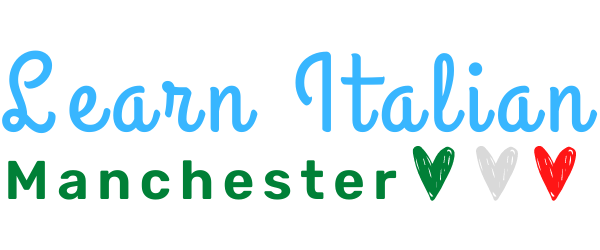One of my Italian students from the United States asked me when to write words in upper case in Italian.
Many words that are capitalized in English are not capitalized in Italian. These include: the days of the week, the months of the year, proper adjectives, a few proper nouns, and titles such as Mr., Mrs., and Miss.
Arriva sabato. He is arriving on Saturday.
Il signor Rossi è italiano. Mr. Rossi is Italian.
Gli inglesi sono industriosi. The English are industrious/hard working.
More examples of when to use uppercase in Italian grammar
The Name of the Rose (both the book and the film) is Il nome della rosa.
I have an English Pronouncing Dictionary and a Dizionario d’ortografia e di pronuncia. With book titles we usually only capitalize the first word(unless, of course, the tile contains a proper noun – Guida alla città di Firenze).
Capital letters in polite forms of address are used as follows: In correspondence, both for the Lei (you) form and the Voi (you) form (Lei if the letter is sent to a specific person, Voi if the letter is sent to an entity or a company): for example ‘…la Vostra lettera‘ (your letter), ‘…per Voi‘ (for you), ‘…per porgerVi‘ (to give you), ‘…inviarLe‘ (to send you).
As a rule, proper names (Carlo, Paolo), town names (Cagliari, Napoli), countries, etc. are written with a capital. A capital letter is always inserted at the beginning of a sentence.
In headings/titles normally only the first word has a capital letter and the rest of the title is in lower case.
Days of the week/seasons/months are always in lower case. Words such as English, Italian, Spanish, Portuguese, etc. which in English are always in upper case, are always written with lower case letter in Italian: inglese, italiano, spagnolo.
A capital letter is only used in Italian in expressions such as gli Inglesi, gli Italiani, i Romani, etc. to mean the English people, the Italian people, etc.
Please note: the word paese can mean ‘country’ OR ‘village/town’. To prevent misinterpretation, when the meaning ‘country’ is intended, Paese within a sentence can be written with a capital ‘P’.

Ready to Put Your Italian Grammar Knowledge to Use?
Now that you know when to capitalise in Italian, why not learn the practical phrases you’ll actually need on your next Italian adventure? My name is Amedea and I’m a native Italian teacher with a real passion for helping holiday-makers speak Italian confidently.
Perfect for Your Next Italian Holiday: If you’re planning a trip to Italy and want to move beyond grammar rules to real, useful conversation, my Italian for Holidays course is designed specifically for tourists like you. This self-paced online course teaches you exactly what you need to know to order food, ask for directions, shop at markets, and connect with locals – without getting bogged down in complex grammar.
What Makes This Course Special: ✓ Audio-based lessons you can take anywhere
✓ Practical phrases for real travel situations
✓ No overwhelming grammar – just what works
✓ Perfect for busy adults preparing for their Italian trip
Whether you’re visiting Rome’s bustling markets, ordering gelato in Florence, or asking for directions in Venice, you’ll have the confidence to engage with locals and make your Italian holiday truly memorable.
What My Holiday Course Students Say:
“I used Amedea’s Italian for Holidays course before my trip to Tuscany and it was brilliant! The audio lessons were perfect for listening to during my commute, and I actually managed to have proper conversations with locals about food and directions. The course focuses on exactly what you need as a tourist – no complicated grammar, just useful phrases that really work!” — Sarah, Manchester, UK
“As someone who’s always been nervous about speaking foreign languages, this course gave me the confidence I needed for my Italian holiday. Within a week I could order meals, ask for help, and even chat a bit about my interests. The Italians were so delighted when I spoke their language – it completely transformed my trip!” — Mark, London, UK
Ready to start speaking Italian for vacation?
Discover the complete Italian for Holidays course that fits in your pocket: Learn Italian for Vacation - Your essential audio-based companion for confident vacation conversations, designed specifically for English speakers by an experienced Italian teacher.
